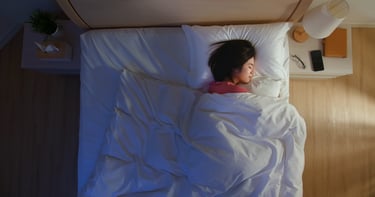eStoreRx™
Online Supplement Dispensary
eStoreRx™ is an easy direct-to-patient ordering & fulfilment program for lifelong wellness.
For over 40 years, Biotics Research Corporation has revolutionized the nutritional supplement industry by utilizing “The Best of Science and Nature”. Combining nature’s principles with scientific ingenuity, our products magnify the nutritional
eStoreRx™ is an easy direct-to-patient ordering & fulfilment program for lifelong wellness.
Biotics Research is proud to expand our commitment to education with the Wellness Unfiltered Pro Podcast. Each episode delves into key health topics and the clinical applications of our premier products. Through candid, insightful conversations, our team offers practical guidance to keep you informed and empowered as a healthcare professional.
February 03 2026
From bodybuilders looking to bulk up to everyday folks trying to drop a few pounds, people have practiced tracking their food for decades. Tracking ca...
 Any health news junkie can see that the importance of sleep has come to center stage. Our collective interest in this shut-eye time grew when studies started linking a lack of sleep to obesity. Ghrelin, an appetite regulatory hormone, became known as the “carb gremlin” with nutritionists reminding us that fewer hours of sleep resulted in a greater craving for carbohydrates. The alarm bells sounded, and even products claiming to increase leptin started appearing on the shelves.
Any health news junkie can see that the importance of sleep has come to center stage. Our collective interest in this shut-eye time grew when studies started linking a lack of sleep to obesity. Ghrelin, an appetite regulatory hormone, became known as the “carb gremlin” with nutritionists reminding us that fewer hours of sleep resulted in a greater craving for carbohydrates. The alarm bells sounded, and even products claiming to increase leptin started appearing on the shelves.
More and more, we see the valuable connection between the necessary amount of quality sleep and our health. In addition to increased body mass index (BMI), sleep deprivation has been linked to cognitive performance, increased risk of heart disease and diabetes, hormonal imbalances, immune system dysfunctions, depression and anxiety, and even vitamin D deficiency. We now can officially say, sleep matters. Once considered a passive time of powering down and turning off, science is revealing to us that yes, our conscious minds power down, but we are far from passive during sleep hours. On the contrary, we now understand that sleep is incredibly complex. During sleep, we reenergize the body’s cells, bolster the immune system, build muscle and bone, clear waste from the brain and support learning and memory. Sleep also plays a role in regulating mood, libido and appetite.
We even make decisions while we sleep. Information that is processed during sleep helps make decisions while awake. Perhaps we can blame indecisiveness on a need for better or more sleep.
Can we also attribute memory decline to a lack of sleep? Apparently, sleep helps create and consolidate memories. As we age, memory decline becomes a focus of concern. A recent study by Walker and colleagues found that memory impairment was linked to less deep sleep, and not necessarily a by-product of getting older. As we age, getting a good quality sleep can be more challenging due to hormonal fluctuations, etc.., but perhaps a loss of memory should be further explored as a sleep issue and not necessarily an age-related inevitability.
Sleep can also bring out the painter or writer in you. Upon waking, each of us experiences what is called a hypnopompic state, or sleep inertia, where we find ourselves in a semi-dreamlike state before consciousness takes full charge. In this state of awakening from REM, many people receive creative insights and report waking early to create their finest work.
And let’s not forget that sleep is a time of detox, clearing away the toxins and fighting infection. Said Maiken Nedergaard, MD, DMSc, co-director of the University of Rochester Medical Center Center for Translational Neuromedicine, explains, “The brain has different functional states when asleep and when awake. The restorative nature of sleep appears to be the result of the act of clearance of by-products of neural activity that accumulate during wakefulness.” Neurodegenerative diseases can be associated with the accumulation of cellular waste products, and accumulation of toxic proteins such as amyloid-beta can lead to Alzheimer’s disease. During sleep, the brain cells reduce in size, which allows the waste to be removed more effectively. Immunologists are also finding links between infection and sleep patterns. In 12 species of mammals, they found sleep duration negatively correlated with infection, concluding that sleep protects us from infection.
The recommendations for an optimal night's sleep duration vary according to different sources, but seems to be somewhere around seven hours. That’s almost as much time as a typical day’s work! So, even though our conscious minds float away yielding to NREM (non-rapid eye movement) and REM (rapid eye movement), and we think we’re passive when sleeping, scientific studies are revealing how busy our bodies and brains actually are during those sleep hours – making sleep our important night job.
With higher quality sleep directly correlated to a healthier life, be sure to punch the clock at night and let sleep do its magical work.
Related Biotics Research Products:
Submit this form and you'll receive our latest news and updates.
The lymphatic system plays a crucial role in maintaining homeostasis within the body, with an emerging body of research ...
Learn moreAs reviewed in a previous blog, infertility is a growing global problem, with record low fertility rates reported in the...
Learn moreResults of a study published May 2024 in Alzheimer’s Research & Therapy indicate an association between sleep apnea ...
Learn more
*These statements have not been evaluated by the Food and Drug Administration. This product has not intended to diagnose, treat, cure, or prevent any disease.
© 2025 Biotics Research Corporation - All Rights Reserved
Submit your comment